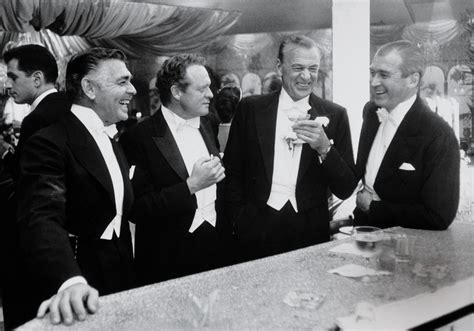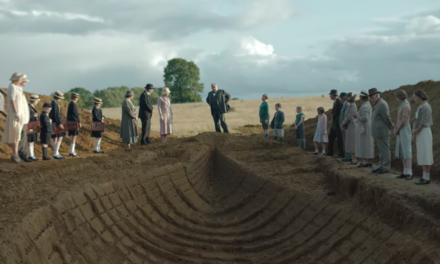Americans — nay, most Westerners — dress like skid-row bums. Am I alone in thinking so? Awhile back I heard Larry Kudlow on radio discussing “Downton Abbey,” of which I’ve written here, and raised the question: Why is it that our culture has completely abandoned the stylish elegance in dress of that now distant era?
Could it be economic conditions? Kudlow is, after all, an economist, so his question shouldn’t surprise anybody, but I think I can say with certainty that the economy has nothing to do with the sad state of dress today.
What does account for this degenerate state in which blue jeans and tees have replaced evening dress? Put simply: manners or, rather, their disappearance. First, let me stress that I’m speaking of manners in the highest, most serious sense.
Consider the following from T. S. Eliot in After Strange Gods:
“. . . tradition involves all those habitual actions, habits and customs, from the most significant religious rite to our conventional way of greeting a stranger, which represent the blood kinship of ‘the same people living in the same place’. It involves a good deal which can be called taboo . . . . We become conscious of these items, or conscious of their importance, usually only after they have begun to fall into desuetude, as we are aware of the leaves of a tree when the autumn wind begins to blow them off—when they have separately ceased to be vital.”
Substitute manners for “habits,” and you’ll have approximately the same observation.
Manners are important because they express, in much more than a fashion statement, the existence of regions of life where certain acknowledged actions and responses fit particular situations and hence undergird civil discourse. Clothes traditionally have been a highly visible declaration of a society’s manners. I may wear a swimsuit on the beach or pajamas to go to bed, but if I wear either to an inauguration, I ought quite rightly to be castigated for want of manners. I may also shower completely naked, but if I walk out into a rainstorm in public in the same state of extreme dishabille I will, to borrow from Eliot, have crossed into the region of the taboo.
Yet I hear often enough of students at state universities who attend class in their pajamas, and I once heard the story of a young woman who was stopped by the highway patrol for driving naked. Why? She said it was “hot.” It doubtless was, but her inability to distinguish between dressing appropriately for the season and dressing not at all might stand as a symbol of the times.
The religion we profess, the institutions we inherit, our memories and our birthplaces, our offices as fathers, sons, grandsons, wives and mothers, our occupations, and the clothes we wear are vital pieces in the puzzle of who we are. That manners, and with them clothes, to fit life’s varied occasions have become increasingly irrelevant and even scorned is, it seems to me, beyond dispute.
I say scorned deliberately. Perhaps I can make the point clear with a reference to the curious and intriguing film “My Dinner With Andre.” In it the character (not the actor/director of the same name) Andre Gregory tells his dinner guest, Wally, about his numerous attempts to find his authentic self.
In the film, Andre’s recent life has been a peeling away of human layers, including conventional manners, in the profoundest sense: playwright, husband, father, citizen—all of these roles are discarded in his quest as he travels to Poland, India, the Sahara, and Scotland trying to find some authentic existence, and each of these attempts results in a consequent rejection of whatever novelty he had discovered as meaningful.
At the end of the film — though perhaps not the intention of its writers — Andre appears naked, unclothed, a nobody babbling inanities about the spontaneity of the ’60s. At the posh NYC restaurant where the film is set, he wears an open-collar shirt and a sweater. The polite waiter, a model of civil endurance, is in formal evening dress.
To avoid misunderstanding, clothes surely do not make the whole man. Wickham in Jane Austen may dress as finely as Darcy, but he’s still a scoundrel. That said, he knows that if he is to do anything in society, he must at least look like Darcy.
That may seem nothing more than hypocrisy, but the concession to civility speaks volumes. A man without any sense of clothes, of the proper attire for a wedding, a funeral, for work or play — is a man adrift, a cultural anarchist, and less than a savage. At best he has sacrificed, as Evelyn Waugh put it, dignity for comfort; at worst he is Dorian Gray in blue jeans.














